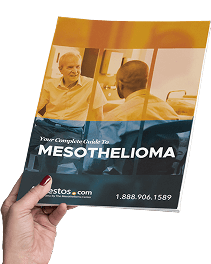Coexisting Conditions and Mesothelioma
Coexisting conditions have been associated with improved mesothelioma survival and may contribute to an earlier mesothelioma diagnosis. Comorbid conditions may result in better care throughout cancer treatment.
What Are Comorbid Conditions?
Comorbidity occurs when someone has two or more diseases or conditions at once. Comorbid conditions are chronic or long-term health problems. These can include diabetes or asthma.
Comorbidities in cancer care are common. For example, 38% of pleural mesothelioma patients have comorbid conditions. The same is true for 52.9% of lung cancer patients.
In some cases, more frequent doctor’s visits can result in an earlier cancer diagnosis. An earlier mesothelioma diagnosis generally improves survival.
Types of Mesothelioma Comorbidities
Common conditions with mesothelioma include coronary artery disease, high blood pressure and diabetes. Other comorbidities are often other asbestos-related illnesses.
These issues may arise from genetics, diet or as a result of cancer. They may cause delays or complications in cancer care. In most cases, doctors can treat both problems at the same time.
Coronary Artery Disease
Coronary artery disease is when plaque builds up inside the artery walls and restricts blood flow to the heart. Smoking, high cholesterol, poor diet and a lack of regular exercise can lead to heart problems. Genetics also plays a significant role.
High Blood Pressure
High blood pressure, or hypertension, occurs when the force of blood inside blood vessels is too high. This pressure damages sensitive organs. It can also cause bleeding or clots. Risk factors include age, lack of exercise, diabetes, high-sodium diets, stress and obesity.
Diabetes
Diabetes is a chronic condition that prevents your body from using food for energy. People with diabetes have too much sugar in their blood which can damage blood vessels. This puts them at higher risk for vision loss, kidney disease and poor wound healing. Genetic and environmental factors can increase the risk of diabetes.
Asbestosis
Asbestosis is a chronic, progressive lung disease caused by asbestos exposure. This exposure also increases the risk of mesothelioma and lung cancer. There is no cure for asbestosis. Some treatments can improve breathing and reduce symptoms.
Pleural or Peritoneal Effusion
Pleural and peritoneal effusions are buildups of fluid. They can occur in the chest lining or abdominal cavity. Excess fluid in these areas often correlates with asbestos exposure. They may appear with or without a mesothelioma cancer diagnosis. Effusions are a common symptom of mesothelioma.
Pleural Diseases
Asbestos is the cause of several pleural diseases. These include plaques, pleuritis and thickening. These signs suggest a higher risk of cancer. Though, not everyone who has these asbestos-related conditions will have cancer.
Chronic Obstructive Pulmonary Disease
Chronic obstructive pulmonary disease, or COPD, is a lung disease. It often refers to chronic bronchitis and emphysema. Smoking is the primary cause of COPD. It may also develop in people who work in dusty, toxic workplaces such as asbestos job sites.
Learn about your diagnosis, top doctors and paying for treatment.
Get Your Free GuideDoctor-reviewed, ships overnight for free

How Are Coexisting Conditions Treated with Mesothelioma?
Doctors can treat most comorbid conditions alongside cancer. Proper treatment for chronic diseases is vital throughout mesothelioma treatment.
These patients have an increased risk of complications. Problems may arise after surgery or during chemo. Doctors may limit the selection of therapies for these patients.
Certain illnesses like heart disease may make someone less eligible for aggressive therapies. Some less aggressive surgeries are still an option.
Patients should avoid home remedies during therapy. For example, antacids can limit drug absorption. St. John’s wort interferes with some chemotherapy drugs.
Tips for Patients with Coexisting Conditions
Caring for your health during cancer treatment is vital for those with a comorbid condition. Contact your health insurance provider to learn how your plan covers cancer care and chronic health conditions.
Here are some tips to help balance comorbidities and mesothelioma treatment:
- Address New Symptoms: Call your doctor about new symptoms as soon as possible. Delaying treatment of new symptoms could result in unwanted complications.
- Keep Your Appointments: Keeping appointments for chronic health conditions can help avoid complications.
- Manage Side Effects: Some side effects of cancer treatment may make it challenging to manage chronic conditions. For example, nausea and vomiting make it difficult to control blood sugar when you have diabetes.
- Take All Medications: Don’t stop taking your regular medicines during cancer treatment. Discuss all medications with your mesothelioma doctor to avoid potential interactions.
- Take Care of Your Mental Health: Coping with cancer on top of chronic conditions is stressful. It can sometimes feel overwhelming. Reach out to family, friends or a mental health professional to get the support you need.
Mesothelioma patients with comorbidities may have a longer duration of symptoms. This could mean a delay in proper treatment. People with chronic conditions should not ignore new signs. These may inform your doctor of whether a severe illness is developing.
Recommended Reading





